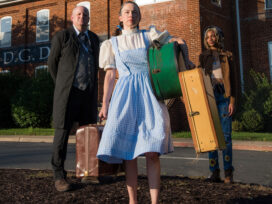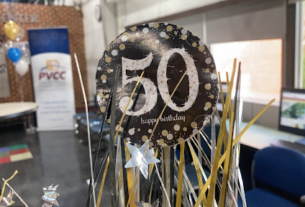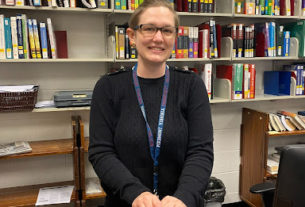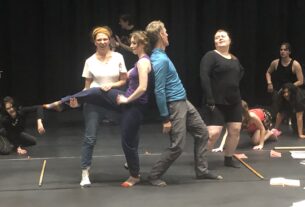PVCC to offer associate degree program for inmates
In a recent board meeting, Piedmont Virginia Community College (PVCC) announced that the college intends to offer full associate degree programs to incarcerated individuals at the Fluvanna Correctional Center for Women (FCCW).
Although PVCC has offered on-site courses at FCCW for 6 years, this new initiative will greatly expand course offerings, and will allow offenders to attain training and education credentials which may allow for more rapid entrance into the workforce upon the end of their sentence.
“PVCC has been offering college courses here [at FCCW] since at least 2005,” said Jennifer Patteson, College Coordinator/Vocational Evaluator at FCCW. Since then, PVCC has increased the classes they offer to eight.
In cases like this, where it is possible for a student to earn more than half the credits required for a particular program of study at an off-campus location, the Southern Association of Colleges and Schools (SACS) must be notified to evaluate the school and its operations.
“When we decided we wanted to offer enough courses and the right mix of courses that students could earn the general studies degree and also as a subset of that the general education certificate, we had to report that to SACS as a substantive change,” said Tara Atkins-Brady, Director of Institutional Research, Planning and Institutional Effectiveness at PVCC. “Gathering documentation that proved the school’s compliance with SACS standards and requirements took months,”
When SACS received notification from PVCC about its increasing efforts at the correctional center, SACS sent a team to evaluate the college and its operations. In this visit, SACS evaluated the college’s off-campus programs and gave the college a “no recommendations” outcome, which in accreditation parlance means that PVCC is in complete compliance and there are no corrective actions required. Such a report from SACS is unusual, and is the best outcome for which a college can hope.
PVCC is working to offer associate degree program courses in sequential order, semester after semester. This will enable students to complete the two-year degree. There are, however, logistical issues associated with extending educational opportunities to the prison system.
Some PVCC courses in the general studies curriculum, such as Information Technology and Biology, require technology or equipment and are not easily offered off-campus, as inmates cannot have access to the internet and much of the equipment involved in science laboratories are prohibited.
Regardless of the obstacles, an informal committee consisting of Kathy Hudson, Dean of Health and Life Sciences; Jennifer Scott, Biology Lab Manager; and Joanna Vondrasek, Associate Professor of Biology have begun to develop a plan that will give incarcerated students essential access to science courses requiring a lab.
Henry Bohleke, Dean of Business, Mathematics and Technology said that his division is thinking about compiling the necessary data for IT classes on CD-ROMs.
When the departments of science and technology refine a way to deliver their classes to the incarcerated, a full two-year degree will be available for the correctional populace.
PVCC will continue to build and assess its outreach programs and advise students who are off-campus. John Donnelly, Vice President for Instruction & Student Services, along with one of the college’s academic deans, travel once a semester to a variety of satellite locations so that students receive individual advising.
Donnelly, who is also involved in the Germanna Community College and its programs of study offered to inmates of Coffeewood Correctional Center, was out of town and could not be reached for comment.
PVCC hopes to confer associate degrees to five students at FCCW within the 2011-2012 academic year.
[Image Credit: Miguel Saavedra via sXc]
Related articles
- PVCC Engineering Dept. leverage grant funds, increase student awareness (piedmontforum.com)
- Big FISH: JABA volunteers tutor at-risk youth (piedmontforum.com)







